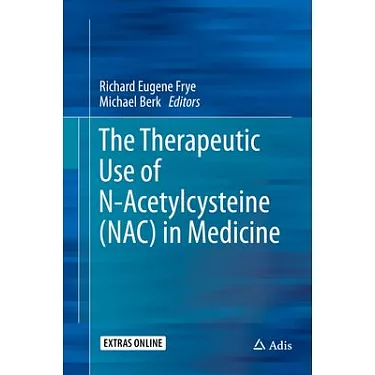Cysteine: The Sulfur-Rich Amino Acid that Protects Your Health
When we talk about nutrients that protect our body from disease and aging, we often think of vitamins like C and E. But there’s another nutrient that works quietly behind the scenes — cysteine, a sulfur-containing amino acid that plays a key role in detoxification, antioxidant defense, and overall vitality.
What Is Cysteine?
Cysteine is a semi-essential amino acid, which means your body can produce it from other amino acids such as methionine and serine. However, during times of illness, stress, or aging, your body’s ability to make enough cysteine may decline, making dietary intake important.
What makes cysteine special is its sulfur content — a natural detoxifier and structural component that supports healthy skin, hair, and internal organs.
Functions of Cysteine in the Body
1. Powerful Antioxidant Production
Cysteine is one of the three amino acids that form glutathione, often called the master antioxidant of the human body. Glutathione helps neutralize free radicals, detoxify harmful substances, and protect cells from oxidative damage. Without cysteine, your body cannot make sufficient glutathione.
2. Liver Detoxification
Cysteine plays a crucial role in the liver’s detox system. It binds to heavy metals and toxins, helping remove them safely from the body. The supplement form of cysteine, known as N-Acetyl Cysteine (NAC), is even used in hospitals to treat acetaminophen (paracetamol) overdose because it restores glutathione levels in the liver.
3. Supports the Immune System
By maintaining optimal glutathione levels, cysteine strengthens the body’s immune defense. It helps white blood cells function effectively and reduces inflammation, allowing the immune system to fight off infections more efficiently.
4. Promotes Healthy Skin, Hair, and Nails
Cysteine contributes to the formation of keratin, a structural protein that gives strength and elasticity to hair, skin, and nails. A diet rich in cysteine can help maintain youthful-looking skin and strong, shiny hair.
5. Improves Respiratory Health
N-Acetyl Cysteine (NAC) has mucolytic properties — it breaks down thick mucus in the airways. This makes it beneficial for people suffering from bronchitis, asthma, or chronic obstructive pulmonary disease (COPD).
6. Protects Brain and Nerve Cells
Glutathione, made from cysteine, protects brain cells from oxidative stress and may help prevent cognitive decline. Some research suggests that cysteine may also help balance neurotransmitters and support mood stability.
Health Benefits of Cysteine
-
Enhances detoxification and liver health
-
Boosts antioxidant defense and slows aging
-
Strengthens immunity and reduces inflammation
-
Supports skin, hair, and nail growth
-
Aids respiratory function by reducing mucus buildup
-
Protects brain and nerve cells from oxidative damage
-
Promotes faster recovery from stress, fatigue, and illness
Symptoms of Cysteine Deficiency
Although cysteine deficiency is uncommon, low levels may occur in people with poor protein intake or chronic illness. Possible signs include:
-
Fatigue and low energy
-
Frequent infections or weak immunity
-
Slow wound healing
-
Brittle hair or nails
-
Sensitivity to toxins or oxidative stress
Food Sources Rich in Cysteine
Cysteine is found in many protein-rich foods, including:
-
Eggs (especially yolks)
-
Poultry (chicken, turkey)
-
Fish (salmon, tuna, cod)
-
Dairy products (milk, cheese, yogurt)
-
Legumes (lentils, beans, chickpeas)
-
Nuts and seeds (sunflower seeds, walnuts)
-
Garlic and onions – rich in sulfur compounds that help the body produce cysteine
-
Cruciferous vegetables – such as broccoli, Brussels sprouts, kale, and cauliflower
For vegetarians, combining sulfur-rich vegetables with legumes and whole grains can help ensure adequate cysteine intake.
N-Acetyl Cysteine (NAC): The Supplement Form
N-Acetyl Cysteine (NAC) is a stable and highly absorbable form of cysteine. It has been widely studied and used for:
-
Liver protection and detoxification
-
Reducing respiratory mucus and congestion
-
Restoring glutathione levels
-
Protecting against oxidative stress and inflammation
However, NAC should be taken with professional guidance, especially if you are on medication or have chronic health conditions.
Conclusion
Cysteine may not be as famous as vitamin C or omega-3, but it is a cornerstone of cellular health. From supporting detoxification and antioxidant defense to promoting healthy skin and strong immunity, this sulfur-rich amino acid plays a vital role in keeping the body balanced and resilient.
A diet rich in cysteine-containing foods — and when needed, NAC supplementation — can go a long way in protecting your cells and slowing down the effects of aging.
Related artivles:
- Glutathione: The Master Antioxidant Your Body Can’t Live Without
- The Health Benefits of L-Glutamine: A Key to Cellular Vitality and Glutathione Production
- The Importance of Gut Bacteria to Overall Health
- The Secret of Burdock Root: A Natural Detoxifier and Longevity Food
- A Cup of Warm Ginger Tea: Dispelling Chill, Boosting Health
- The Budwig Diet: Origins, Scientific Basis, and Clinical Evidence
- Moringa Leaves: The “Super food” Gift from Nature, Unlocking a New Secret Code to Health
- Nutrition and Modern Medicine: Healing Should Not Rely Solely on Drugs

